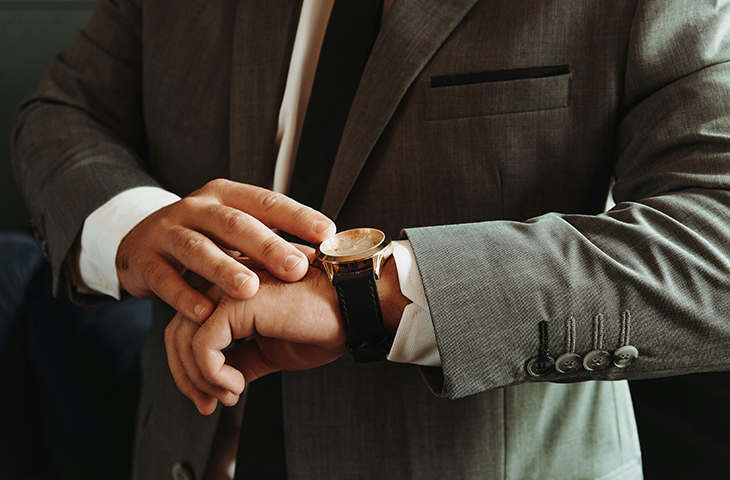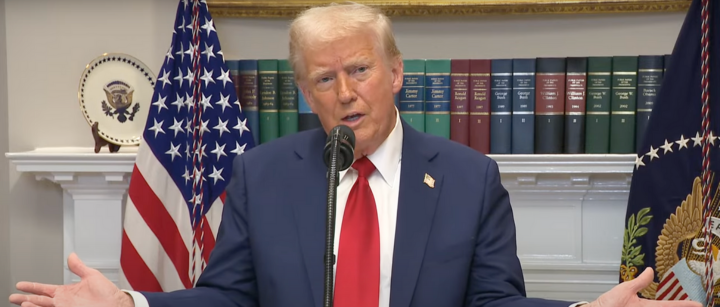Who Will Stay Standing?

[Editor's Note: The following article is part of BlackOut: A Five-Year Retrospective on Portland’s Racial Justice Movement, a joint publication from Donovan Scribes and the Portland Mercury. Written exclusively by Black Portlanders, the purpose of BlackOut is to remember and reflect on the May 25, 2020 murder of George Floyd at the hands of police, and the 100+ days of protests in Portland that same year. You can find BlackOut in print at more than 500 locales citywide, inserted inside the Mercury's Food Issue. You can read all the BlackOut articles here.]
Right out of the gate, the national media framed the 2020 Portland protests as they always do. They called it lawless. They called it grim. They made it sound that at any moment all hell was going to break loose.
They made it sound like protesters were going to destroy every piece of property in the city. They made it sound like we were wild eyed and without morals. Like beasts in the street.
Lawless.
Lawless is one man kneeling on another neck until he dies. Lawless is kicking down a door and shooting a woman in her home. I can think of a million little lawless acts a day.
And grim? You know what’s grim, is when a police officer kills a man with his knee on his neck and every single second of that is streamed to the world.
That’s grim.
The headlines set up the narrative that demanding civil rights is scary. Soon after, every random white person with a social media account was going to #BLM our way to an equal society. It was the “Great Awokening,” as I saw somebody put it.
Back then for Black folks, everywhere was an apology opportunity. In line at the grocery store? Some woman wants to apologize for the systemic racism you face everyday.
Grabbing a latte? The barista just wants to let you know they took a comparative race and gender course, and they are so, so, so sorry things are the way they are.
“Thank you. Can I also get a bagel?”
With the apologies and pilot programs and little seedlings of investment comes a demand for public recognition. With every act of performative solidarity, there is a demand that the #ally be recognized. There are announcements supporting “major DEI initiatives.” There are promises of reform and renewal.
And soon after the apologies and the promises and the #BLM investments, there is always the pullout and backlash.
After some initial new investments, we have seen a significant divestment from the Black community in Portland.
And to be honest, I'm sick of being the fuss bucket. I struggled writing this piece because there are so many people I want to call out. So much hypocrisy and performance art masquerading as social change, and I just sick to death of thinking about it. Living in it. Living through it.
I'm sick of watching people abandon their promises. It makes me want justice.
Artantza Peña PopoShould I call out the financial institutions that promised to stand by our sides? The department stores? The politicians and titans of industry?
Where'd everyone go?
Who's to blame them for bailing? After all, in their media and their houses, the people who protest for civil rights are “lawless.” After all, our communities have been neglected and passed over.
Am I fussing enough?
Why do the Black communities get punished the most? Lower business ownership, higher incarceration rates, or average household income, bad health outcomes? Can I go on?
Or am I fussing too much?
If I ask the question why the hard work of “E Pluribus Unum” is never given a chance to go over budget, will I get an honest answer? How many more Immanueal Clarks, George Floyds, and Sandra Blands will there be before we're finally comfortable enough to talk about it all?
And how you going to stand up — let alone stay up — if you can't even talk about it?
So, things are left incomplete. The promised police and prosecutorial reforms. Accountability. Economic equity, educational funding… hell, a DEI class to remind those who need the reminder that they’re not the only people—and type of people—in the office. Each idea and program and attempt at progress is killed the moment it makes the power structure too uncomfortable or unprofitable.
Meanwhile, the same conditions exist. And with them, the same results. I hate to say it and wish it weren’t true, but there will be another Immanueal Clark. Another George Floyd. Another Breonna Taylor.
Who will turn up when the time comes for mass demonstrations? Will it be #fashionable now that we live in a world sick of hashtags? Will allies show up? I don’t know. I was in Selma recently to commemorate the 60th anniversary of Bloody Sunday, and I couldn’t help but notice just how few white people came to march. The U.S. writ large has no memory of Bloody Sunday. Every day where such is quarantined as “Black History,” and not marked as a day of national remembrance, the United States will be unjust and unequal.
I also think of how much protest has changed. Certainly, from the 1960s, but even compared to the George Floyd uprisings just a few years before. The Portland Police have acquired “robotic dogs” from Boston Dynamic. Will they deploy them during a peaceful demonstration? Which weapons will authorities use to disperse peaceful crowds? Would the Trump administration deploy the same sonic assault that occurred this past March in Belgrade on peaceful protestors? Will the federal government deploy Tesla Robots to greet protesters? Can Tesla robots drink soda? If not, what will they do when Kylie Jenner shows up with Pepsis?
Then there’s the facial recognition, the harassment, the kettling, the deportations, the private prisons…. There are all the painful tools an oppressive government can deploy to make protestors pay. So who will turn up? Will allies have the courage and capacity to stand against white supremacy?
At what point does protesting become so unprofitable and detrimental for the person who attends that no one shows up? Who will brave this new world we find ourselves in to turn up? Will there be allies?
Will anyone hear their higher angels over the bellicose anger that stirs our society today?
Nkenge Harmon Johnson is the President and CEO of the Urban League of Portland. A lifelong Oregonian, she previously worked in the Obama administration as a trade official and as a Congressional staffer.


